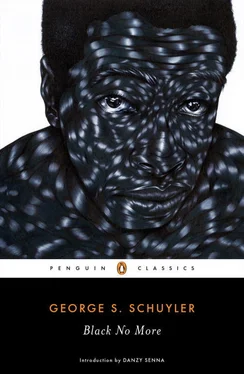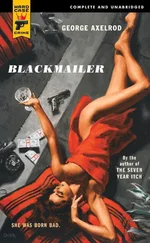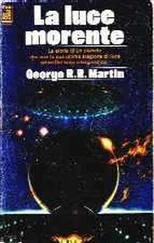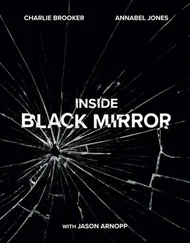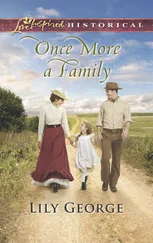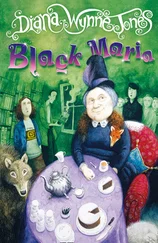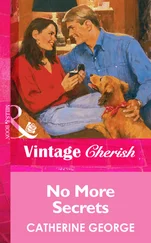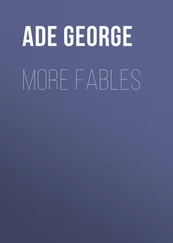The plane slowly circled to the ground. The region was slightly rolling and there was no good landing place. There could be no delay, however, so Frazier did his best. The big ship bumped over logs and through weeds, heading straight for a clump of trees. Quickly the pilot steered it to the left only to send it head first into a ditch. The plane turned completely over, one wing was entirely smashed and Frazier, caught in the wreckage under the engine, cried feebly for help for a few moments and then lay still.
Shaken up and bruised, the two passengers managed to crawl out of the cabin window to safety. Dolefully they stood in the Mississippi sunlight, surveying the wreckage and looking questioningly at each other.
“Well,” whined Dr. Buggerie, rubbing one large sore buttock, “what now?”
“Shut up,” growled Snobbcraft. “If it hadn’t been for you, we wouldn’t be here.”
—
Happy Hill, Mississippi, was all aflutter. For some days it had been preparing for the great, open-air revival of the True Faith Christ Lovers’ Church. The faithful for miles around were expected to attend the services scheduled for the afternoon of Election Day and which all hoped would last well into the night.
This section of the state had been untouched by the troubles through which the rest of the South had gone as a result of the activities of Black-No-More, Incorporated. The people for miles around were with very few exceptions old residents and thence known to be genuine blue-blooded Caucasians for as far back as any resident could remember which was at least fifty years. The people were proud of this fact. They were more proud, however, of the fact that Happy Hill was the home and birthplace of the True Faith Christ Lovers’ Church, which made the prodigious boast of being the most truly Fundamentalist of all the Christian sects in the United States. Other things of which the community might have boasted were its inordinately high illiteracy rate and its lynching record—but these things were seldom mentioned, although no one was ashamed of them. Certain things are taken for granted everywhere.
Long before the United States had rid themselves of their Negroes through the good but unsolicited offices of Dr. Junius Crookman, Happy Hill had not only rid itself of what few Negroes had resided in its vicinity but of all itinerant blackamoors who lucklessly came through the place. Ever since the Civil War, when the proud and courageous forefathers of the Caucasian inhabitants had vigorously resisted all efforts to draft them into the Confederate Army, there had been a sign nailed over the general store and post office reading NIGER REDE & RUN. IF U CAN’T REDE, RUN ENEYHOWE. The literate denizens of Happy Hill would sometimes stand off and spell out the words with the pride that usually accompanies erudition.
The method by which Happy Hill discouraged blackamoors who sought the hospitality of the place was simple: the offending Ethiopian was either hung or shot and then broiled. Across from the general store and post office was a large iron post about five feet high. On it all blacks were burned. Down one side of it was a long line of nicks made with hammer and chisel. Each nick stood for a Negro dispatched. This post was one of the landmarks of the community and was pointed out to visitors with pardonable civic pride by local boosters. Sage old fellows frequently remarked between expectorations of tobacco juice that the only Negro problem in Happy Hill was the difficulty of getting hold of a sufficient number of the Sons or Daughters of Ham to lighten the dullness of the place.
Quite naturally the news that all Negroes had disappeared, not only from their state but from the entire country, had been received with sincere regret by the inhabitants of Happy Hill. They envisioned the passing of an old, established custom. Now there was nothing left to stimulate them but the old time religion and the clandestine sex orgies that invariably and immediately followed the great revival meetings.
So the simple country folk had turned to religion with renewed ardor. There were several churches in the country, Methodist, Baptist, Campbellite and, of course, Holy Roller. The latter, indeed, had the largest membership. But the people, eager for something new, found all of the old churches too tame. They wanted a faith with more punch to it; a faith that would fittingly accompany the fierce corn liquor which all consumed, albeit they were all confirmed Prohibitionists.
Whenever and wherever there is a social need, some agency arises to supply it. The needs of Happy Hill were no exception. One day, several weeks previously, there had come to the community one Rev. Alex McPhule who claimed to be the founder of a new faith, a true faith, that would save all from the machinations of the Evil One. The other churches, he averred, had failed. The other churches had grown soft and were flirting with atheism and Modernism which, according to Rev. McPhule, were the same thing. An angel of God had visited him one summer evening in Meridian, he told them, when he was down sick in bed as the result of his sinning ways, and had told him to reform and go forth into the world and preach the true faith of Christ’s love. He had promised to do so, of course, and then the angel had placed the palm of his right hand on Rev. McPhule’s forehead and all of the sickness and misery had departed.
The residents of Happy Hill and vicinity listened with rapt attention and respect. The man was sincere, eloquent and obviously a Nordic. He was tall, thin, slightly knock-kneed, with a shock of unkempt red hair, wild blue eyes, hollow cheeks, lantern jaw and long apelike arms that looked very impressive when he waved them up and down during a harangue. His story sounded logical to the country people and they flocked in droves to his first revival held in a picturesque natural amphitheater about a mile from town.
No one had any difficulty in understanding the new faith. No music was allowed besides singing and thumping the bottom of a wooden tub. There were no chairs. Everybody sat on the ground in a circle with Rev. McPhule in the center. The holy man would begin an extemporaneous song and would soon have the faithful singing it after him and swinging from side to side in unison. Then he would break off abruptly and launch into an old-fashion hellfire-and-damnation sermon in which demons, brimstone, adultery, rum, and other evils prominently figured. At the height of his remarks, he would roll his eyes heavenward, froth at the mouth, run around on all fours and embrace in turn each member of the congregation, especially the buxom ladies. This would be the signal for others to follow his example. The sisters and brothers osculated, embraced and rolled, shouting meanwhile: “Christ is Love! … Love Christ! … Oh, be happy in the arms of Jesus! … Oh, Jesus my Sweetheart! … Heavenly Father!” Frequently these revivals took place on the darkest nights with the place of worship dimly illuminated by pine torches. As these torches always seemed to conveniently burn out about the time the embracing and rolling started, the new faith rapidly became popular.
In a very short time nothing in Happy Hill was too good for Rev. Alex McPhule. Every latchstring hung out for him. As usual with gentlemen of the cloth, he was especially popular with the ladies. When the men were at work in the fields, the Man of God would visit house after house and comfort the womenfolk with his Christian message. Being a bachelor, he made these professional calls with great frequency.
The Rev. Alex McPhule also held private audiences with the sick, sinful and neurotic in his little cabin. There he had erected an altar covered with the white marble top from an old bureau. Around this altar were painted some grotesque figures, evidently the handiwork of the evangelist, while on the wall in back of the altar hung a large square of white oilcloth upon which was painted a huge eye. The sinner seeking surcease was commanded to gaze upon the eye while making confessions and requests. On the altar reposed a crudely-bound manuscript about three inches thick. This was the “Bible” of the Christ Lovers which the Rev. McPhule declared he had written at the command of Jesus Christ Himself. The majority of his visitors were middle-aged wives and adenoidal and neurotic young girls. None departed unsatisfied.
Читать дальше
